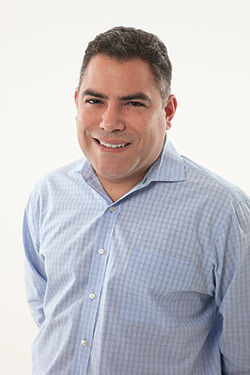 I mark my 44th birthday this summer with little fanfare. Apart from being numerically interesting (I’m not much into numerology, but I do appreciate the symmetry of two identical numerals), it’s no biggie. Like most people, I give more attention to birthdays ending in fives and zeros.
I mark my 44th birthday this summer with little fanfare. Apart from being numerically interesting (I’m not much into numerology, but I do appreciate the symmetry of two identical numerals), it’s no biggie. Like most people, I give more attention to birthdays ending in fives and zeros.
That said, I do appreciate every birthday. I never thought I would see 30 when I was diagnosed with HIV at the age of 22. Every birthday is a chance for me to give thanks to the universe for still being alive.
Even though this birthday may not have much pizzazz otherwise, it does possess its own specialness. From now on, I will have spent most of my life knowing I have HIV. Every day, every year and every decade that I hope to have the good fortune of living will pull me that much further from my HIV-negative former life.
Although it has been 22 years since my diagnosis, I still don’t embrace the idea of my being a long-term survivor. Others may label me as such, and I won’t argue. I just don’t feel like I’ve earned it yet. Maybe I’ll be ready to accept that phrase for myself after 25 years post-diagnosis. Circle back with me then.
By any measure, Julie Lewis certainly qualifies as a long-term survivor of HIV. Marking 30 years of living with the virus is an achievement for anyone. However, as the mother of Ryan Lewis, one half of the Grammy Award–winning hip-hop duo Macklemore & Ryan Lewis, Julie realized she could mark the occasion with a lot of fanfare, enough to be able to give back.
In recognition of 30 years living with HIV, Julie launched the 30/30 Project with the support of Ryan and the rest of her family. The project seeks to build 30 health centers that will operate for at least 30 years to serve the people most in need around the world. The centers will provide HIV/AIDS services, as well as comprehensive medical services. Click here to read our exclusive interview with Julie.
The challenges of aging with the virus are only compounded for those who were on the front lines in the early days of the epidemic. Many of them, including Tez Anderson, report experiencing symptoms usually associated with post-traumatic stress disorder. Click here to read how he’s fighting back by launching Let’s Kick ASS (AIDS Survivor Syndrome).
Living long-term with HIV is usually what people think of when they think of older folks and the virus, but that’s not the whole story. Increasingly, people over 50, such as Nancy Asha Molock and Rik Gillette, are being newly diagnosed with HIV. They have similar concerns about aging with the virus, but they also have unique challenges with “you should have known better” stigma. Click here to read how they’re staying resilient.
Advertisement
Advertisement
Advertisement






Comments
Comments